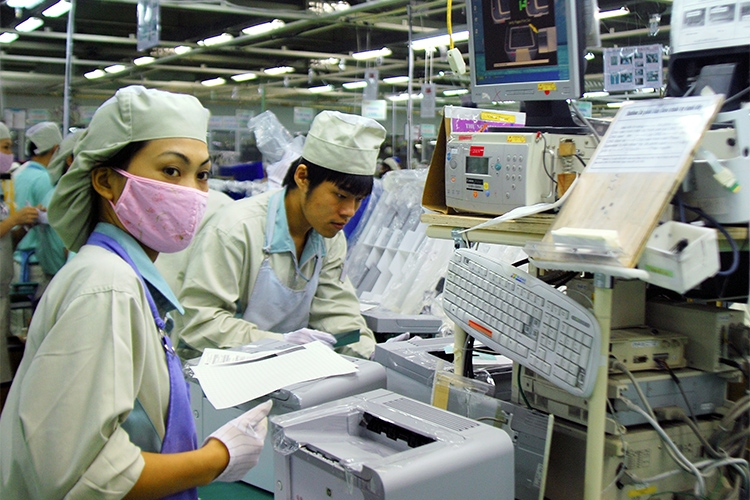Industry and trade agencies prioritize resources to restore production
In 2022, Departments of Industry and Trade of localities will prioritize identifying resources to help enterprises restore production and grasp market opportunities to expand exports.

In 2021, despite impacts of the Covid-19 pandemic, the industry and trade sector in many localities maintained growth. For example, Phu Tho Province’s industrial production index increased by about 8.6 percent compared to 2020. The industrial sector in Ha Tinh Province also remained a driving force, contributing 4.46 percent of the province’s total 5.02 percent gross regional domestic product (GRDP) growth with a 16.45 percent increase in industrial production index and exports also up by 66.7 percent to reach US$2 billion.
According to data from the General Statistics Office of Vietnam, total export and import turnover in 2021 reached US$668.5 billion, a year-on-year increase of 22.6 percent; the added value of the industrial sector increased by 4.82 percent compared to 2020, of which the processing and manufacturing industry increased by 6.37 percent. This result, apart from efforts of the localities, was also attributed to timely directions from the leaders of the Ministry of Industry and Trade and its member units.
The Agency for Regional Industry and Trade (ARIT) acts as a bridge with localities to ensure that directives and solutions issued by ministry leaders were strictly and effectively implemented.
A representative of the ARIT said that last year, the agency closely coordinated with localities to implement the National Industry Promotion Program with a total budget of VND75.641 billion. The program encouraged rural industrial enterprises to modernize production technology gradually, creating products of greater value and competitiveness, which also helped local businesses stabilize production and business during the pandemic-hit periods.
Management of industrial clusters
Regarding management of industrial clusters, the agency consistently deployed tasks from planning, investment in infrastructure construction and management, including appraisals of adjustments and proposals of industrial cluster planning, thereby enabling localities to complete technical infrastructure and increase the occupancy rate of the clusters, and at the same time solve the shortage of industrial production premises in rural areas.
In addition, a network of consultants has been developed to assist small and medium-sized enterprises in accessing and using services to improve their operational efficiency.
According to experts, the Covid-19 pandemic is a strong test for the development policy and management flexibility of the industry and trade sector in general and that in localities in particular. Despite initial confusion, the sector promptly adjusted and reconciled inadequacies in pandemic prevention and control and maintained production and trade.



